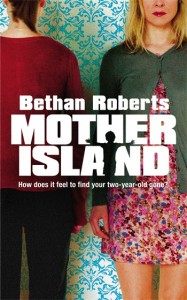 Published by Chatto & Windus, 5 June, 2014
Published by Chatto & Windus, 5 June, 2014
309pp, hardback, £16.99
Reviewed by Shirley Whiteside
What does it feel like when someone abducts your two year old son? What does it feel like to take another woman’s child? These are the questions that Bethan Roberts poses in this novel of family secrets based in Oxford and the island of Anglesey, known to locals as Mon Mam Cymru, the Mother of Wales.
Maggie, an Oxbridge dropout, is pleased when her cousin Nula asks her to be nanny to Samuel, her toddler son in her Oxford home. The two women haven’t been in touch for more than 15 years and Maggie hopes that by caring for Samuel she can make some kind of peace with the past. At first the arrangement works well. Nula goes back to work secure in the knowledge that Maggie is not only an excellent nanny but is also part of the family. Maggie soon falls in love with Samuel, a bright but demanding little boy, and they slip into an easy rhythm of games, outings and stories.
Roberts’ forensic dissection of family life is almost painful to read at times. Nula is racked with guilt that she is pleased to escape to work every day even though she adores Samuel. Her relationship with her husband Greg is brittle and feels liable to shatter at any moment. She even suspects that Greg is having an affair with Maggie and that they are planning to take Samuel from her. Greg does make a rather obvious play for Maggie, testing out the water to see if she would be interested in an affair but Maggie withdraws from him, shocked at his casual attitude to infidelity.
Roberts is skilful in portraying Maggie’s increasing obsession with Samuel as she begins to believe that he will be better off in her care. Maggie feels Samuel can heal the wounds of the past but what she perceives as a carefully worked out plan is actually a confused emotional response to what happened the summer she was fifteen. She decides to take Samuel to Anglesey, where it all began to go wrong for her.
Maggie is a sympathetic character but slowly her grasp on reality loosens. She has always been the odd one in the family, the swot, but she could not cope with the hothouse atmosphere of Oxbridge and becomes a nanny instead of an academic. Nula, always flawlessly turned out and with a glamorous media job, is less sympathetic to start with. As Roberts splits the narrative between Maggie and Nula, it becomes clear that Nula is struggling with the realities of being the perfect wife and mother. Like Maggie, Nula is haunted by that summer on Anglesey and going back to rescue her son stirs up painful memories.
Roberts switches the action between the present and the past, between Maggie and Nula, and drops subtle hints about the events that led the family to fracture. The language is simple but she employs evocative metaphors and similes that bring both Oxford and Anglesey into sharp focus. This is not a book to start reading late in the evening because once the first page is turned it is hard to put this gripping tale down again.
